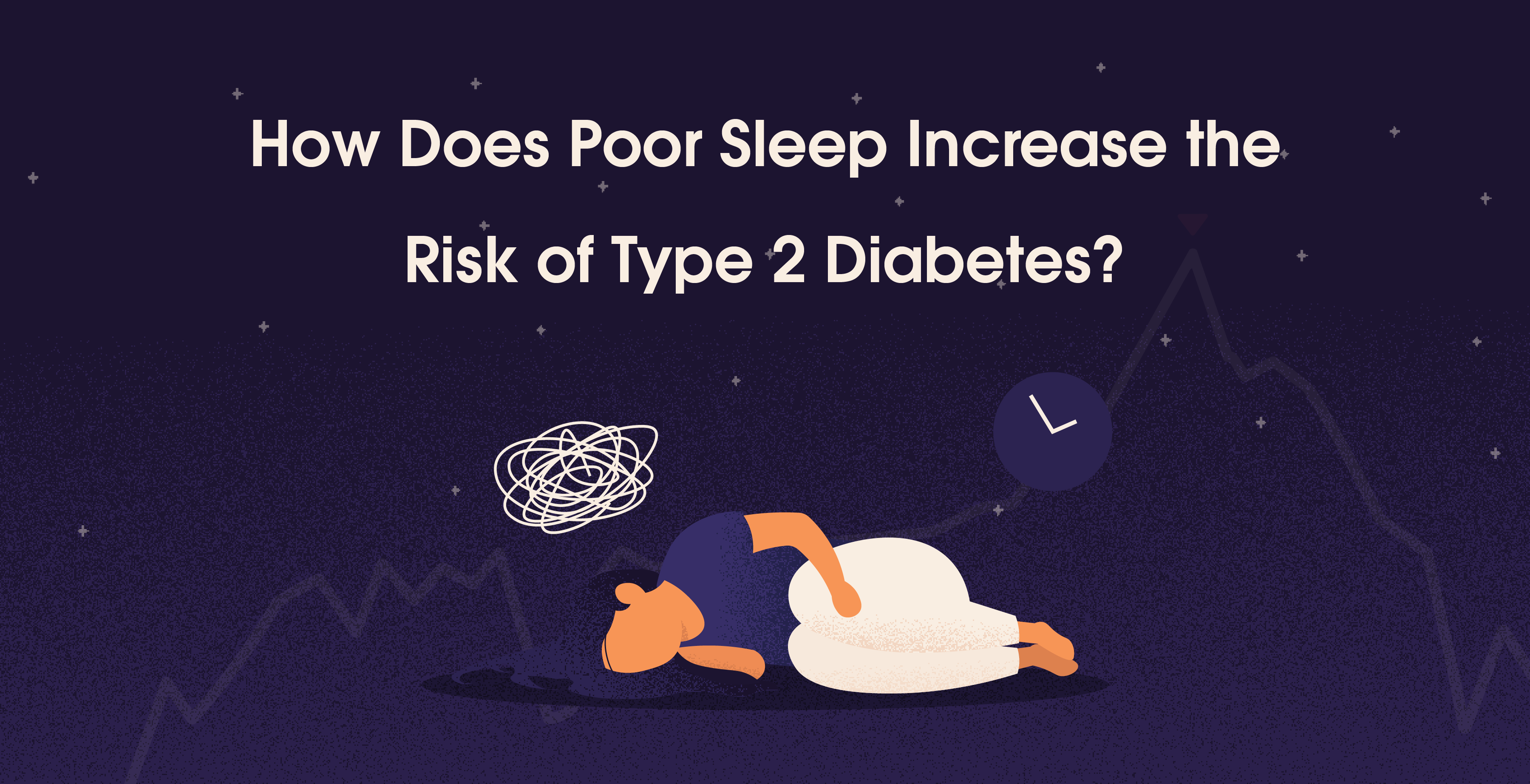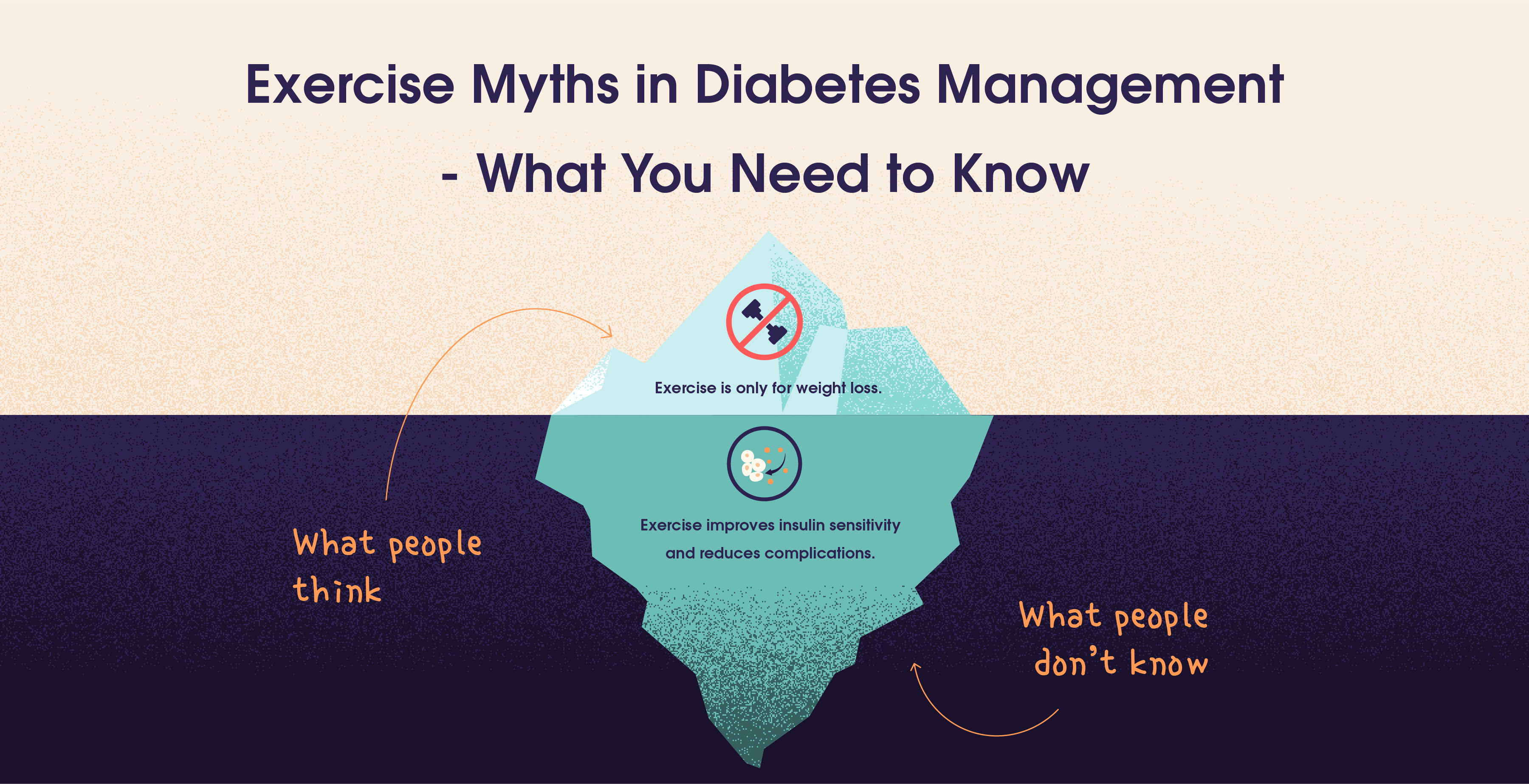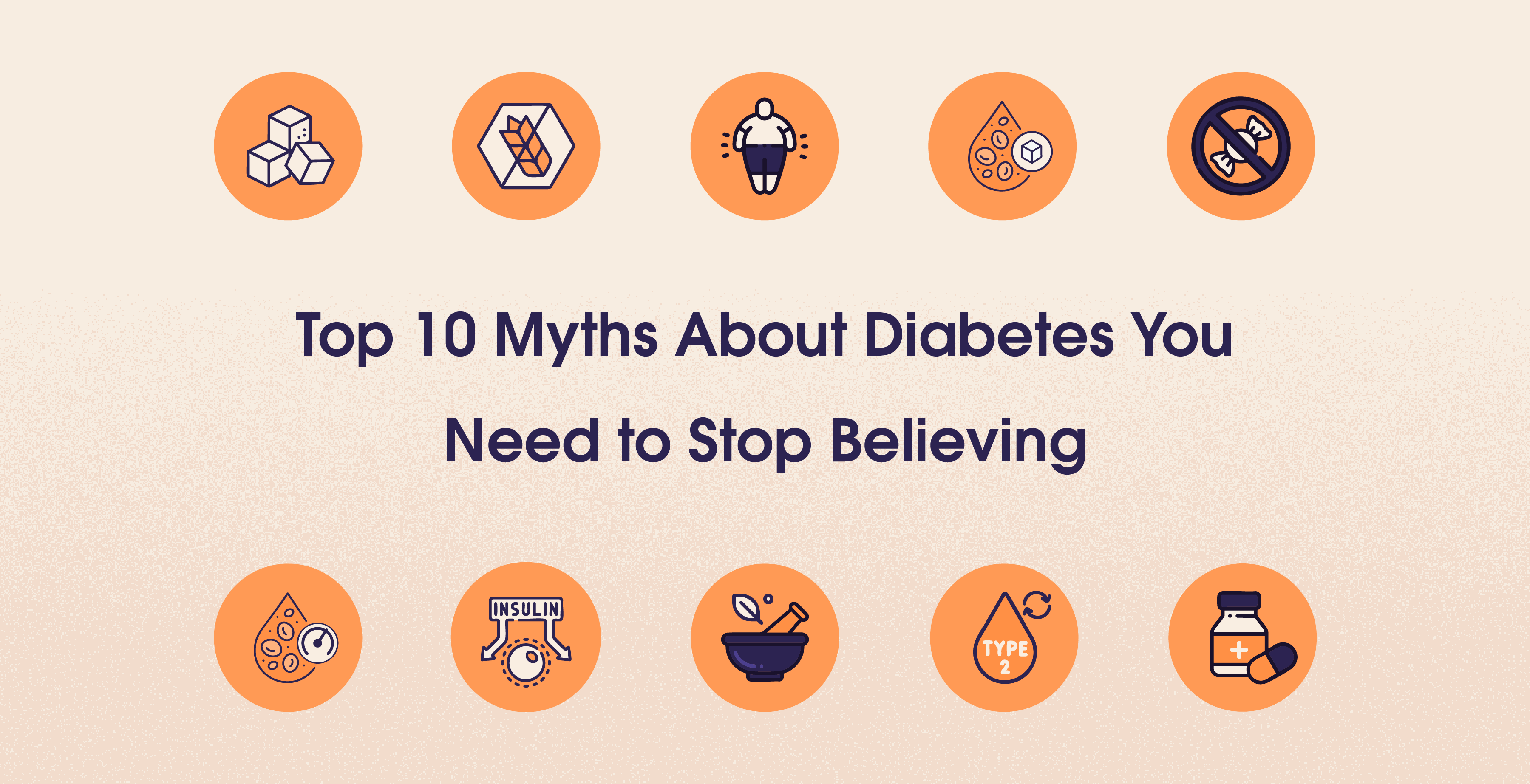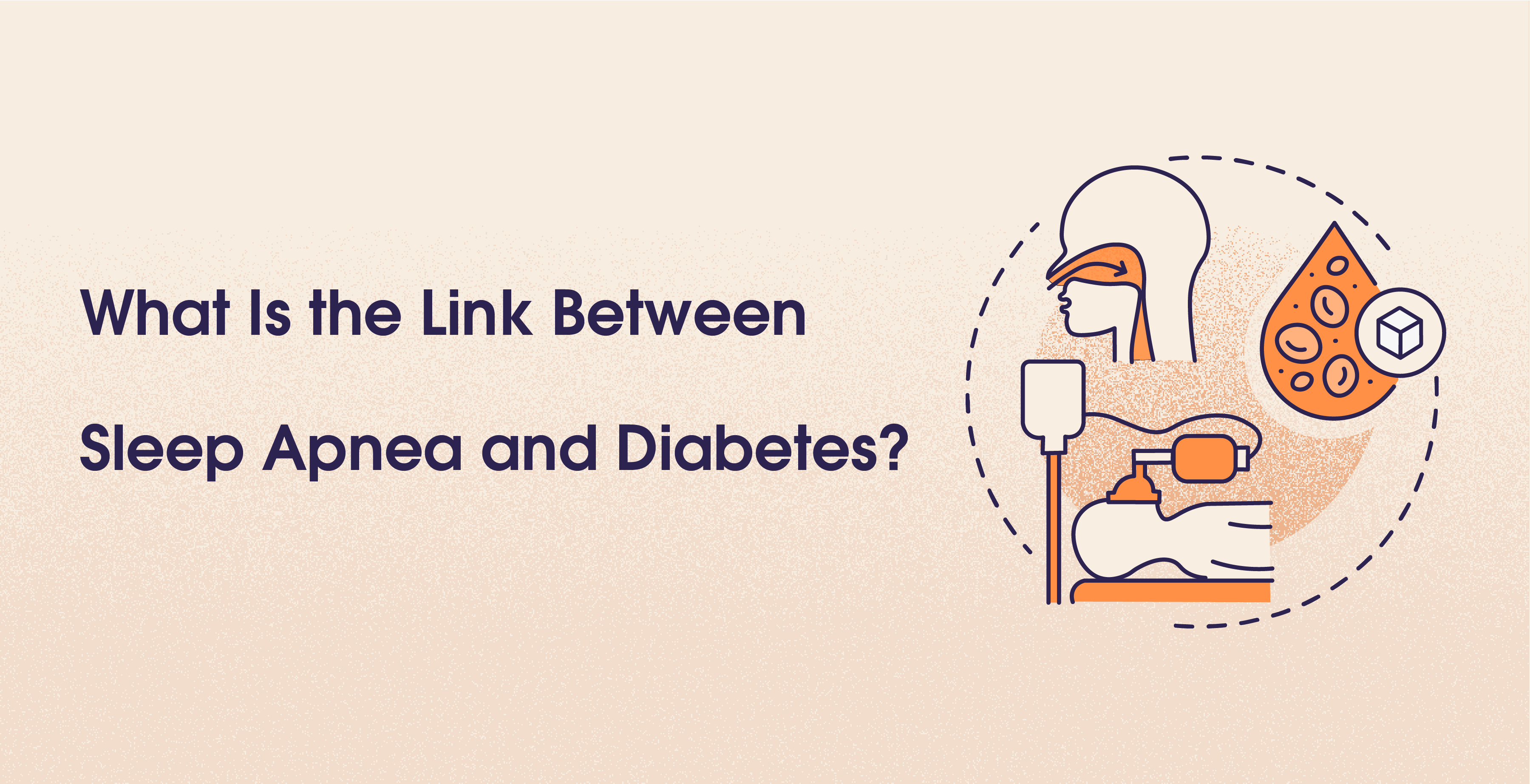How Does Poor Sleep Increase the Risk of Type 2 Diabetes?
Jan 29, 2025
Aparna Hurtis



Table Of Contents
There’s a little truth we often ignore: sleep isn't just downtime; it's a cornerstone of our health. Yet, many of us treat it as an optional luxury. Late-night scrolling, binge-watching another episode, or simply tossing and turning—it’s all fun and games until your body starts protesting. But did you know poor sleep can actually nudge you closer to type 2 diabetes? Yeah, let’s break it down.
Highlights
Poor sleep disrupts blood sugar regulation, leading to insulin resistance and increasing the risk of type 2 diabetes.
Sleep deprivation elevates cortisol levels, which raise blood sugar, and disrupts hunger hormones (ghrelin and leptin), causing overeating and weight gain.
Chronic inflammation caused by poor sleep affects insulin efficiency, contributing to higher diabetes risk.
An irregular sleep schedule disrupts the circadian rhythm, impacting insulin secretion and blood sugar balance.
Sleep apnea interrupts deep sleep and releases stress hormones, which interfere with blood sugar control.
Fatigue from insufficient sleep encourages reliance on sugary foods, creating a cycle of blood sugar spikes and crashes.
Solutions include maintaining a consistent sleep schedule, avoiding screens before bedtime, and limiting late-night snacks.
Treating sleep apnea is crucial to improving sleep quality and reducing diabetes risk.
Quality sleep plays a vital role in overall health, particularly in preventing chronic conditions like diabetes.
The Domino Effect of Sleep Deprivation
Do you know how one bad decision can spiral into a chain reaction? That’s what sleep deprivation does to your body. When you’re not catching enough Zs, your body’s finely tuned systems begin to fall apart like a Jenga tower.
For starters, your blood sugar regulation goes haywire. Normally, your body uses insulin—a hormone that helps cells absorb glucose from your bloodstream. But when you skimp on sleep, your cells start ignoring insulin, a condition known as insulin resistance. Think of it like your body hitting "snooze" on insulin’s calls to action. The glucose piles up in your blood, setting the stage for diabetes.
Your Hormones in Disarray
Sleep deprivation is like a rude roommate messing with your hormones. It jacks up cortisol levels—yep, your stress hormone—and cortisol isn’t just about making you feel frazzled; it also raises blood sugar levels.
And then there’s ghrelin and leptin, the twin hormones that control hunger and fullness. Lack of sleep cranks up ghrelin (making you feel hungrier) and dampens leptin (so you never feel satisfied). The result? Midnight cravings and an unending love affair with junk food. Unsurprisingly, this weight gain contributes to insulin resistance, nudging you closer to that diabetes risk.
Inflammation: The Silent Saboteur
Poor sleep stirs up inflammation. And no, we’re not talking about a minor cut swelling up. This is chronic, low-grade inflammation, the kind that quietly wreaks havoc over time. Inflammation affects how insulin works, making it less effective. Combine that with insulin resistance, and suddenly, your pancreas is working overtime to pump out insulin—until it can’t keep up anymore.
Messing with Your Circadian Rhythm
Your body loves routine. It’s got this internal clock—your circadian rhythm—that syncs everything from sleep to digestion. But when you’re burning the midnight oil or suffering from fragmented sleep, your rhythm gets all out of whack.
How does this tie into diabetes? Well, your pancreas, the organ responsible for producing insulin, follows your circadian rhythm too. If your sleep schedule is a mess, your pancreas might not secrete insulin at the right times, causing blood sugar to spike unpredictably.
Sleep Apnea and Blood Sugar Spikes
Sleep apnea—a condition where your breathing repeatedly stops and starts during sleep. It’s more common than you think, and it’s tightly linked to type 2 diabetes. Why? For one, it disrupts deep sleep, the phase where your body gets to repair and reset. It also floods your system with stress hormones every time your body jolts awake. Stress hormones, as you might’ve guessed, don’t play nice with insulin.
The Vicious Cycle of Fatigue and Sugar
When you’re tired, what’s the first thing you reach for? Coffee, followed by a sugary snack, right? It’s like your body’s screaming for quick energy. But here’s the thing—those sugar highs and inevitable crashes don’t help. Over time, this cycle trains your body to depend on fast carbs, leading to frequent blood sugar spikes. And the more this happens, the harder it is for your system to process glucose efficiently.
Breaking the Sleep-Diabetes Loop
So, what’s the fix? First off, prioritize sleep like it’s a non-negotiable. Aim for 7-9 hours of good-quality rest every night. Easier said than done, I know. But even small changes can make a big difference.
Stick to a schedule: Go to bed and wake up at the same time every day, even on weekends.
Ditch the screens: The blue light from your devices can mess with your melatonin levels, the hormone that helps you sleep.
Watch your evening snacks: Late-night eating can spike blood sugar and make it harder to fall asleep.
If you’re dealing with sleep apnea, don’t ignore it. Seek treatment—it could literally save your life.
The Bigger Picture
Sleep isn’t just about avoiding grogginess. It’s a foundation for so much more—your metabolism, mental clarity, and yes, even your risk of developing chronic conditions like diabetes.
Think of your body like a well-oiled machine. Sleep is the maintenance it needs to run smoothly. Skip the maintenance, and you’re setting yourself up for a breakdown. So, maybe it’s time to put down the phone, close your laptop, and make sleep a priority. Your pancreas will thank you.
References
There’s a little truth we often ignore: sleep isn't just downtime; it's a cornerstone of our health. Yet, many of us treat it as an optional luxury. Late-night scrolling, binge-watching another episode, or simply tossing and turning—it’s all fun and games until your body starts protesting. But did you know poor sleep can actually nudge you closer to type 2 diabetes? Yeah, let’s break it down.
Highlights
Poor sleep disrupts blood sugar regulation, leading to insulin resistance and increasing the risk of type 2 diabetes.
Sleep deprivation elevates cortisol levels, which raise blood sugar, and disrupts hunger hormones (ghrelin and leptin), causing overeating and weight gain.
Chronic inflammation caused by poor sleep affects insulin efficiency, contributing to higher diabetes risk.
An irregular sleep schedule disrupts the circadian rhythm, impacting insulin secretion and blood sugar balance.
Sleep apnea interrupts deep sleep and releases stress hormones, which interfere with blood sugar control.
Fatigue from insufficient sleep encourages reliance on sugary foods, creating a cycle of blood sugar spikes and crashes.
Solutions include maintaining a consistent sleep schedule, avoiding screens before bedtime, and limiting late-night snacks.
Treating sleep apnea is crucial to improving sleep quality and reducing diabetes risk.
Quality sleep plays a vital role in overall health, particularly in preventing chronic conditions like diabetes.
The Domino Effect of Sleep Deprivation
Do you know how one bad decision can spiral into a chain reaction? That’s what sleep deprivation does to your body. When you’re not catching enough Zs, your body’s finely tuned systems begin to fall apart like a Jenga tower.
For starters, your blood sugar regulation goes haywire. Normally, your body uses insulin—a hormone that helps cells absorb glucose from your bloodstream. But when you skimp on sleep, your cells start ignoring insulin, a condition known as insulin resistance. Think of it like your body hitting "snooze" on insulin’s calls to action. The glucose piles up in your blood, setting the stage for diabetes.
Your Hormones in Disarray
Sleep deprivation is like a rude roommate messing with your hormones. It jacks up cortisol levels—yep, your stress hormone—and cortisol isn’t just about making you feel frazzled; it also raises blood sugar levels.
And then there’s ghrelin and leptin, the twin hormones that control hunger and fullness. Lack of sleep cranks up ghrelin (making you feel hungrier) and dampens leptin (so you never feel satisfied). The result? Midnight cravings and an unending love affair with junk food. Unsurprisingly, this weight gain contributes to insulin resistance, nudging you closer to that diabetes risk.
Inflammation: The Silent Saboteur
Poor sleep stirs up inflammation. And no, we’re not talking about a minor cut swelling up. This is chronic, low-grade inflammation, the kind that quietly wreaks havoc over time. Inflammation affects how insulin works, making it less effective. Combine that with insulin resistance, and suddenly, your pancreas is working overtime to pump out insulin—until it can’t keep up anymore.
Messing with Your Circadian Rhythm
Your body loves routine. It’s got this internal clock—your circadian rhythm—that syncs everything from sleep to digestion. But when you’re burning the midnight oil or suffering from fragmented sleep, your rhythm gets all out of whack.
How does this tie into diabetes? Well, your pancreas, the organ responsible for producing insulin, follows your circadian rhythm too. If your sleep schedule is a mess, your pancreas might not secrete insulin at the right times, causing blood sugar to spike unpredictably.
Sleep Apnea and Blood Sugar Spikes
Sleep apnea—a condition where your breathing repeatedly stops and starts during sleep. It’s more common than you think, and it’s tightly linked to type 2 diabetes. Why? For one, it disrupts deep sleep, the phase where your body gets to repair and reset. It also floods your system with stress hormones every time your body jolts awake. Stress hormones, as you might’ve guessed, don’t play nice with insulin.
The Vicious Cycle of Fatigue and Sugar
When you’re tired, what’s the first thing you reach for? Coffee, followed by a sugary snack, right? It’s like your body’s screaming for quick energy. But here’s the thing—those sugar highs and inevitable crashes don’t help. Over time, this cycle trains your body to depend on fast carbs, leading to frequent blood sugar spikes. And the more this happens, the harder it is for your system to process glucose efficiently.
Breaking the Sleep-Diabetes Loop
So, what’s the fix? First off, prioritize sleep like it’s a non-negotiable. Aim for 7-9 hours of good-quality rest every night. Easier said than done, I know. But even small changes can make a big difference.
Stick to a schedule: Go to bed and wake up at the same time every day, even on weekends.
Ditch the screens: The blue light from your devices can mess with your melatonin levels, the hormone that helps you sleep.
Watch your evening snacks: Late-night eating can spike blood sugar and make it harder to fall asleep.
If you’re dealing with sleep apnea, don’t ignore it. Seek treatment—it could literally save your life.
The Bigger Picture
Sleep isn’t just about avoiding grogginess. It’s a foundation for so much more—your metabolism, mental clarity, and yes, even your risk of developing chronic conditions like diabetes.
Think of your body like a well-oiled machine. Sleep is the maintenance it needs to run smoothly. Skip the maintenance, and you’re setting yourself up for a breakdown. So, maybe it’s time to put down the phone, close your laptop, and make sleep a priority. Your pancreas will thank you.
References
Table Of Contents
Table Of Contents
Table Of Contents
Read More


Apr 2, 2025
Sayfali Rawlani


Feb 17, 2025
Aparna Hurtis


Feb 10, 2025
Aparna Hurtis



Company
Copyright © 2025 trst health. All right reserved.

